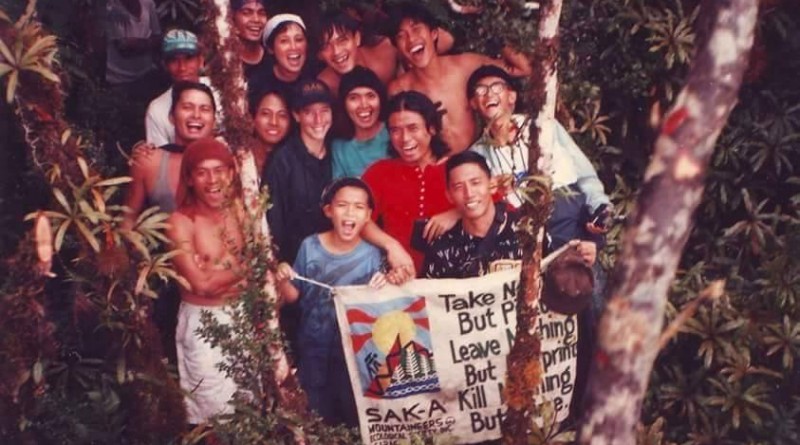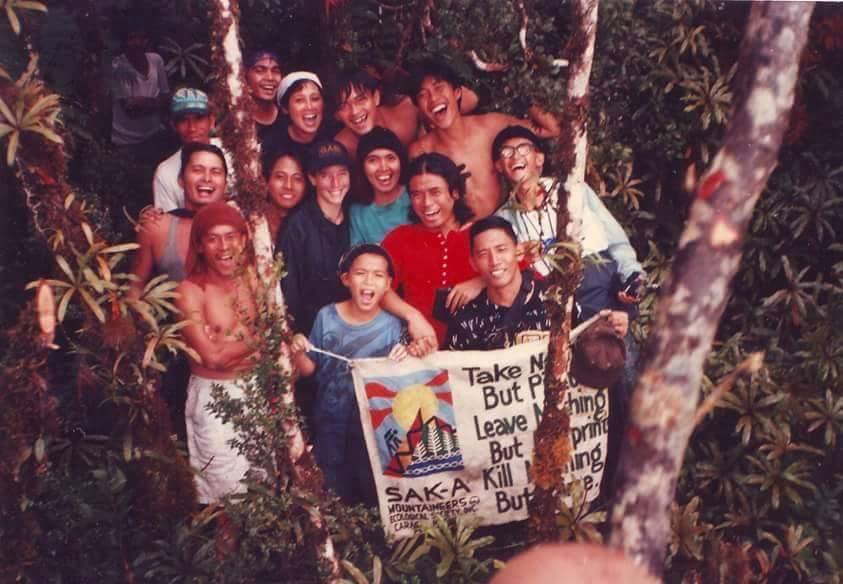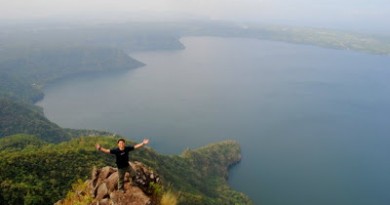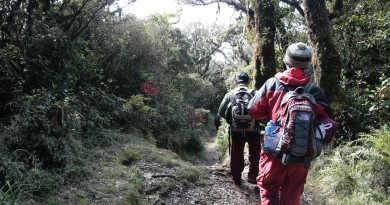Ten tips on how to be a good climb participant
by Gideon Lasco
As hiking becomes more popular, many hiking parties are formed by people who don’t know each other that well, and while beginners are often (understandably) more worried about themselves (i.e. worrying if your jacket is enough for the cold of Pulag or thinking about having enough power banks to last the whole hike), this article emphasizes the need to be a good member of the team. Towards this end, here are some tips that I can offer:
1. If you’ve committed to join a climb, don’t back out. Organizers consider group size in planning transportation, food, campsite, number of guides, and in the computation of the budget – among many other considerations. Backing out, especially just a few days before the hike, is not good and you should try to avoid it at all costs – especially if you want to get invited again. Of course there are unavoidable problems that are understandable but still, you should make an effort to fulfill your commitments.
2. Join the preclimb, and make an effort to know as much as you can about the hike. Don’t just show up without any idea about the mountain. Do your own research. Joining the preclimb is a sign of support to your team leader, and is a way not just for you to get to know the other participants, but for them to get to know you. Another related tip is: Don’t be ashamed to ask questions, even if they betray your ignorance. It’s better to look stupid on a preclimb than to be stupid on the climb itself.
3. Don’t be late. One of the main concerns of a team leader is the itinerary, and to be late is to compromise the plan of the entire group. If the bus leaves at 10 PM, be there at 9:30 PM. Being late is a poor reflection not just of yourself as mountaineer, but as a person.
4. Be prepared. Don’t join a climb if you’re not physically prepared for it, otherwise you will be a burden to the team. If the team leader tells you to do aerobic exercises in preparation for a hike, take it seriously. Also, make sure that you’ve brought all the necessary gear. Forgetting to bring a headlamp, for instance, can compromise your group’s ability to trek at night. If you have assignments – like buying butane cans – don’t forget them.
5. Do your own research. Don’t just rely on your team leader for information. There’s so much information in the Internet that there is no excuse for ignorance. Your TLs are also not perfect and you may be able to contribute information that’s needed. Also, there may be situations when you will be alone and you must have an idea about the mountain: where the campsites are, where the water sources are.
6. Try not to be a liability to the team. Follow the itinerary, don’t be late for the summit assault, don’t take too long in packing your bags. Also remember that when you climb with a group or an individual, people will associate your behaviour with them. Make sure that follow the LNT principles. It would be unfortunate, for instance, if you would leave some trash behind, and such bad behavior would be ascribed to the group you’re climbing with.
7. Share your skills, knowledge – and trail food – to others. The surest sign of maturity in a hiker is when he begins to think of the welfare of others. Even if you don’t have a major task (i.e. cooking), be helpful in the campsite; volunteer to do tasks like washing cooksets or getting water from the water sources. Offer assistance to fellow hikers who are in need, and throughout the hike, be someone who shares. By sharing your stories, your jokes, your experiences, your skills, and your personality, you can make people remember you in a nice way. Bear in mind that after all, hiking is not just about gaining new peaks, but also winning new friends.
8. Be open and honest. If you’re too tired to continue the climb, or if you are feeling bad, you must tell your host. In some instances, this is a more important principle than “Try not to be a burden”. For example, if you have a very severe stomachache, don’t be shy or “nahihiya”, say it! If it becomes worse, you would end up being a greater burden for yourself and for the group. Also, if you do not drink alcohol, or use marijuana, don’t be embarrassed to say “no”, politely and firmly, even if the rest of the group would be happy if you can join them in their activities.
9. Respect the privacy and intimacy of your group. Hiking can be a very intimate experience, because there are so many things that can happen in a climb. Hikers can sometimes get into embarrassing situations, like a very upset stomach, a psychological breakdown, or hiking with torn clothing. Gossiping about someone or some group you’ve climbed with is considered bad taste, especially if you were a guest of that person or that group. If there are problems, resolve them during the climb, or during a postclimb. Ranting about your climb mates in the Internet, where everyone can watch, will not make you a very desirable person to invite on future hikes.
10. Appreciate the effort of your team leaders and organizers. It takes effort to organise the climb and appreciating your team leaders and organizers will mean a lot to them. Even just a little shoutout alongside the summit photo you will be posting on Facebook will be appreciated. And of course, the best way to appreciate them is to be a good participant – that is, following the above tips as best as you can. Remember, it’s easy to be part of a group. The challenge is to be part of a team.






Leave a Reply
Be the First to Comment!